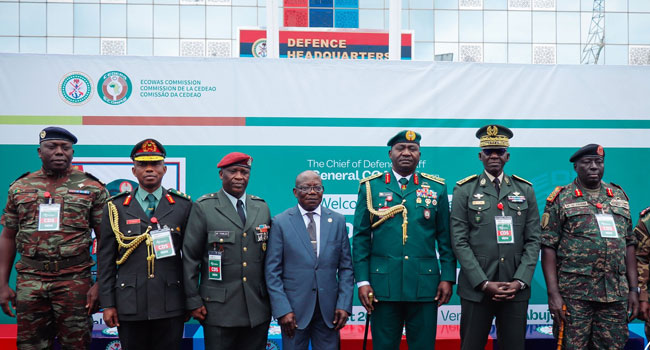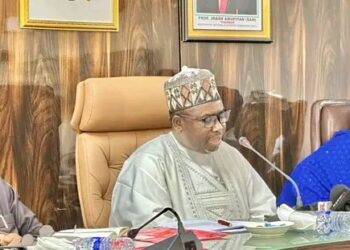Ministers of Foreign Affairs and Defence from ECOWAS Member States are meeting in Nigeria for the 53rd Ordinary Session of the ECOWAS Mediation and Security Council (MSC) at the Ministerial Level.
The meeting is held at the Economic Community of West African States (ECOWAS) Commission Headquarters in Abuja.
The 52nd meeting of the MSC was held in July and it focused on addressing regional security and political issues.
It also highlighted democratic transitions and peaceful elections in various member states.
The 53rd Ordinary Session of the ECOWAS Mediation and Security Council is chaired by Nigeria’s Minister of Foreign Affairs, Ambassador Yusuf Tuggar.
In his welcome statement, the President of the ECOWAS Commission, Omar Touray, commended President Bola Tinubu’s leadership in the West African region.
He, however, expressed concern that while the ECOWAS prepares to celebrate its golden jubilee, three member states have indicated their decision to withdraw from the community.
Touray called on member states to recommit to the values of ECOWAS.
He said the meeting will address the political situation in in region, the security situation in the region, the humanitarian situation, and the establishment of a special tribunal on human rights abuses among other issues.
The Minister of Foreign Affairs of Nigeria and the Chair of the Council, Ambassador, Yusuf Tuggar, commended the people of Ghana for a peaceful election.
He stressed the importance of political stability in engendering development and urged that ECOWAS member states redouble their efforts to promote peace in the West African region.
He also highlighted the importance of regional cooperation and collective action in addressing security challenges.
Tuggar reiterated the need to sustain momentum in the fight against terrorism in the face of rising waves of terrorist attacks.
On humanitarian situation, he says efforts need to be intensified to ensure that no community is left behind in assisting those affected by insecurity and natural disasters such as flooding.
Furthermore, he calls for concerted efforts to tackle money laundering and terrorism financing not just among ECOWAS member states but Africa as a whole.
He lauded the achievement recorded in Maritime security within the ECOWAS maritime domain.
According to him no serious maritime infraction was recorded in 2024.
On the operationalisation of the ECOWAS Standby Force, the Chairman of the ECOWAS Mediation and Security Council said updates are expected to be given during the meeting.
Channels











